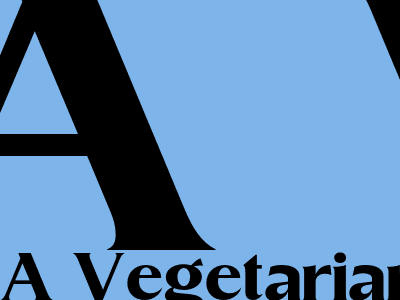A Beginner's Guide to Vegetarianism
What is Vegetarianism?
Vegetarianism is a lifestyle that excludes meat and poultry from the diet. There are many different types of vegetarian diets, from those that allow eggs and dairy (lacto-ovo vegetarianism) to those that exclude all animal products (veganism).
Vegetarianism has been practiced for centuries for religious, ethical, and health reasons. In recent years, there has been growing interest in vegetarianism as a way to reduce the environmental impact of food production.
Benefits of Vegetarianism
There are many potential benefits to adopting a vegetarian diet, including:
- Reduced risk of heart disease, stroke, and type 2 diabetes: Vegetarian diets are typically lower in saturated fat and cholesterol than meat-based diets, which can help to reduce the risk of these chronic diseases.
- Lower blood pressure: Vegetarian diets are often higher in potassium, which can help to lower blood pressure.
- Improved cholesterol levels: Vegetarian diets are typically higher in fiber, which can help to lower cholesterol levels.
- Reduced risk of some types of cancer: Some studies have shown that vegetarian diets may be associated with a reduced risk of certain types of cancer, such as colon and prostate cancer.
- Weight loss: Vegetarian diets are typically lower in calories than meat-based diets, which can help to promote weight loss.
- Environmental benefits: Meat production is a major contributor to greenhouse gas emissions, water pollution, and deforestation. Vegetarian diets can help to reduce the environmental impact of food production.
Challenges of Vegetarianism
There are also some challenges to adopting a vegetarian diet, including:
- Ensuring adequate protein intake: Protein is an essential nutrient for good health. Vegetarian diets can be lower in protein than meat-based diets, so it is important to make sure to include good sources of protein in your diet, such as beans, lentils, nuts, and seeds.
- Getting enough iron: Iron is another essential nutrient that can be lower in vegetarian diets. Good sources of iron for vegetarians include beans, lentils, spinach, and fortified cereals.
- Meeting vitamin B12 needs: Vitamin B12 is a nutrient that is not found in plant foods. Vegetarians and vegans need to make sure to get enough vitamin B12 from fortified foods or supplements.
- Social challenges: Vegetarianism can sometimes be challenging in social situations, as many people are not familiar with vegetarian diets and may not be able to accommodate your dietary needs.
Tips for Adopting a Vegetarian Diet
If you are considering adopting a vegetarian diet, here are a few tips to help you get started:
- Start gradually: You don't have to give up meat all at once. Start by cutting out meat one day a week or by trying meatless Mondays.
- Make small changes: Start by making small changes to your diet, such as substituting beans for ground beef in your favorite chili recipe.
- Experiment with new recipes: There are many delicious vegetarian recipes available online and in cookbooks. Experiment with new recipes to find ones that you enjoy.
- Talk to your doctor or a registered dietitian: If you are considering adopting a vegetarian diet, it is a good idea to talk to your doctor or a registered dietitian. They can help you make sure that you are getting all of the nutrients that you need.
Conclusion
Vegetarianism can be a healthy and rewarding lifestyle choice. If you are considering adopting a vegetarian diet, there are many resources available to help you get started. With a little planning and effort, you can enjoy all of the benefits that a vegetarian diet has to offer.

Comments